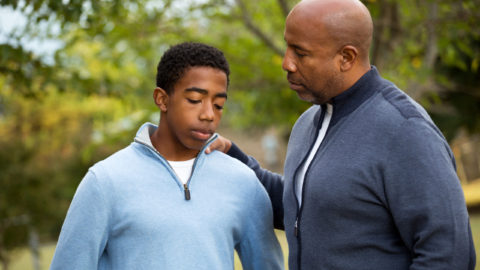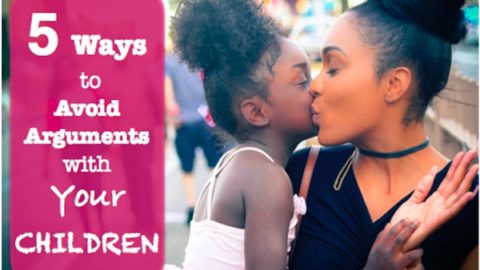The challenges we face on planet Earth are definitely not for the lily livered! The population of the world seems to face one crisis after another. This ranges from threats of war, to mass shootings, to starvation, to violation of human rights, and on and on and on. While the latest crisis is uniquely different from this list, the international spread of the Coronavirus (also referred to a COVID-19) poses a real and serious threat to people of every country.
Today, I want to specifically explore Coronavirus from the perspective of parents and others who care for children. The goal is to empower adults to understand how children experience this world crisis that has now invaded and become a national crisis in the United States. Let’s consider how best to support children of every age and make sure they feel cared for and protected despite the potential threat to safety, health, and the world of children.
There are many areas to consider, so let’s get started!
1. Children take their “cues” from us.
As adults we must remember that the children in our lives take their “cues” from us. Be honest with your children. However, also remember that the way you communicate can have a very strong impact on the message you give your children,
If they sense that you are feeling afraid and helpless then they have an uncomfortable sense that life is scary and threatening and they are not safe.
On the other hand, if they see that you are facing a potentially scary issue with a plan for safety, they receive a very different message that even though scary things are happening, the adults in their lives have developed a plan that focuses on safety and providing care for everyone.
2. Children can tell if we’re being dishonest.
Children are very capable of sensing dishonesty. When an adult disregards their fears, it weakens both their sense of safety and their confidence that these adults understand how they feel and can be trusted to provide them with the necessary care and safety.
Likewise, when adults disregard information that is publicly communicated (TV, internet, radio, etc.) and minimize the effects that these conversations can have on whoever is listening, the results can easily have a negative effect and increase the “fear factor” for children. Be very clear that you are listening to the news and following the government recommendations for safety. Also show confidence that you and your family will remain safe and healthy. Lastly, inform them that if this plan changes you also have a plan for providing needed care. This may refer to care at home or possibly seeking medical care.
There are so many electronic sources that expose us to news and events of every type. As guardians, you must consider what children are hearing from other sources. It is also important that adults provide accurate information that is geared to the level of the child’s ability to understand what is being said. In fact, encourage your children to share with you what they know about the Coronavirus and the changes in our daily lives. As a result, you better recognize the level of their awareness and also understand their level of concern/fears.
3. Adults must recognize and understand dramatization.
It is important for adults to realize that the same information can be transmitted in a way that emphasizes threats or focuses on possible solutions. The media often transmits information in a way that focuses on potential or actual threats to increase the dramatic effect on the listeners. This sometimes happens in an effort to potentially increase the number of viewers/listeners and thus the success of the show. It allows them to compete more successfully with other stations. As such, you will need to focus on providing your children with possible solutions, and no doubt you will need to debunk exaggerated fears caused by media sensationalism.
4. You are a source of information for your children.
Regardless of what children hear through the media the information shared by the adults in their lives is of the utmost importance.
Focus on communicating with honesty while emphasizing the work that is being done to increase safety along with your plan to keep them safe.
5. Children understand non-verbal communication.
Remember that your feelings, your facial expression, and your body language communicate much more than you realize. Research suggests that over 90% of communication is non-verbal! So if your tone of voice, your facial expressions, and your body language communicate that you are scared, then that is the message that your children will receive: “Mommy is scared, so there is no way that I can be safe.”
Also remember that there is a difference between being aware of potential threats (along with having a plan for care) and being paralyzed/feeling helpless.
6. Prepare to answer questions about Coronavirus and other concerns.
Be ready to answer questions about potential threats associated with any news story or world crisis that your child mentions. Remember that “less is more” and focus your comments on the solutions to these threats.
For example, if having enough food to survive is a major issue, create a list of what you will buy to eliminate this issue along with a plan for when groceries will be purchased to avoid crowds. Also, invite your children to help you make a list of supplies and groceries that are already in the house. After this, make a list of only what MUST be purchased now. Explain that an adult will make the purchases and what time they will plan to do so. Additionally, “just for the fun of it” make a list of things they would like to buy once everyone can safely go shopping.
7. Do NOT introduce more issues.
Again, remember that “less is more.” Do not introduce issues of concern that your children have not mentioned in order to eliminate the possibility that you may be adding to their fears by discussing a danger that is not bothering them. Invite them to ask you questions about any information they hear via the media or their friends or other adults.
8. Depending on the age of your child, introduce some activities.
Keeping everyone busy during times of self-quarantine eases the fear and helps pass the time.
1. Have your child draw pictures on any of these subjects:
- Taking care of one another
- Leaving home to get supplies safely
- Activities to do at home since school is closed
- What’s fun to do while playing inside the house
- How they can be helpful at home
2. Perhaps work together to organize a schedule for the parts of the day that seem to “drag” and feel boring.
3. Make a list of why being “stuck at home” gets boring. What can we do when life gets boring?
4. Consider creating a “family diary. ” Everyone can put down their thoughts into a family book and share after meals or during boring “gaps.” If a child doesn’t read, let them communicate to you and write down their thoughts for them.
If other activities come to mind or your children suggests them, put those on your family agenda!
Let’s Get Specific About Coronavirus
Talking to your child about this worldwide challenge while following the eight suggestions mentioned above will allow your child to understand the challenge while still feeling cared for and protected. Take the time to review the work being done by the Centers for Disease Control and Prevention (CDC) so you can briefly summarize what the CDC is doing to keep people safe. Also be sure you explain this information at a level that the child can understand. Tell your child that this powerful government agency is working to inform and protect everyone. Simplify information that may confuse your child by explaining that the terms “COVID-19” and “Novel Coronavirus” refer to the same threat that we know as the “Coronavirus.”
Should parents be worried? Like any disease that doesn’t have a specific preventive vaccine or medication as of yet, the Coronavirus is of concern to any parent. However, a parent can choose to focus on the frightening aspects of the threat or focus on the solutions that are on the horizon. For example, Israel has been studying this virus and is on the road to finding a cure and preventive treatment. Additionally, the Coronavirus is much less threatening to children than to seniors and everyone who is careful and follows rules to avoid contamination stands a good chance of surviving.
Continue to further educate yourself and stay up-to-date without necessarily informing your child of all the scary news. Learn more about the impact of Coronavirus by checking out these two links:
https://www.cdc.gov/coronavirus/2019-ncov/index.html
https://www.washingtonpost.com/world/2020/01/22/mapping-spread-new-coronavirus/?arc404=true
Look for Accurate Information on the Coronavirus
In order to give your children accurate information remember to actively research worldwide steps to solutions, safety, and control of the Coronavirus that are on the horizon. Remain aware of existing and new public information that may cause your children fear and ready yourself to respond with your plan and public plans to keep everyone safe. Also be aware of existing and new public information that might help your child feel safer. Be sure to share that information.
Encourage your children to share the “uncomfortable” (or even “scary”) news they hear. Calmly respond with the reminder of what your family is doing to stay safe. Empower your children: ask THEM what else they think would be helpful to do at home and, if possible, follow the suggestions that make sense and/or help them modify their suggestions so that they can/will be followed.
Remember that there have been other epidemics throughout history. These have been brought under control, thereby allowing the human race to grow and prosper. Be sure to research this information online and share the positive aspects with your children as you deem appropriate.
Most of all, calmly communicate to your children that you are informed, prepared, and have a plan for keeping them safe.
Above all, keep the lines of communication open between you and your child(ren) so that they can share their fears and concerns and be reassured by your response that explains what you are doing to keep everyone safe.













